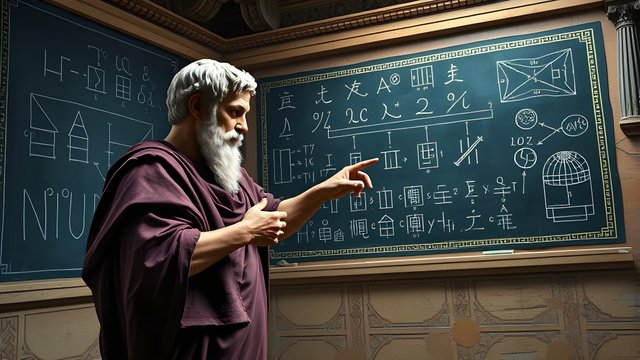What is the Difference Between Analysis and Criticism?
I've been contemplating the best use of AI in writing. The large language model used by AI evaluates existing literature on a topic then spits out a plausible answer.
The tool is valuable in that it shows current academic consensus on a topic. AI occasionally provides unique insight on topics.
So, I've been searching for test cases concerning AI.
Last Night I Found a Test Case
My test case involved watching multiple videos and then a stupid TV pundit. I decided not to link to the sources as they really aren't important to this post.
The Videos About Aristotle
Many AI programs are based on a language model. So, I decided to ask Gemini about the history of logic.
To prep for the question I watched 4 videos about Aristotle who is often called the father of logic.
Aristotle called his method of evaluation "analysis."
In the process of analysis, one breaks down arguments into definitions, prepositions, syllogisms, etc., and then examines the parts.
Analysis is an extremely powerful tool in that it allows people to understand and improve their arguments.
BTW: I learned from the video something extremely helpful. The term "syllogism" is derived from the the verb "syllogizesthai" (Greek; συλλογίζεσθαι), which means "to reason" or "to conclude." The term "syllogism" means a valid conconclusion. It is helpful to know that a syllogism is the end of a process.
Now for some Banal TV
Having watched insightful videos. I watched a tv pundit criticize a political opponent.
The pundit said really nasty things about his opponent. He did a great job framing his opponent in a negative light. There is no need to cite this pundit as there are millions of hours of video with pundits attacking opponents.
As I was going to sleep, I wondered why the TV pundit was so awful. He was engaged in criticism but his criticism came off as mindless.
I then asked myself the question: "What is the difference between analysis and criticism?"
The Relation of Criticism to Analysis
Here's the deal. People who engage in analysis often come up with useful solutions.
Criticism based on authentic analysis is often useful.
People who launch into criticism without any form of analysis simply create noise and division.
So, I Asked Gemini
I have my opinions about the relation between "analysis" and "criticism."
I realized that my opinions were not objective. I simply disliked the TV pundit and wanted to treat him the same why he treated his opponent.
I realized that my question would be a good test case for AI. I asked Gemini the question: "What is the difference between analysis and criticism"?
Gemini's Reponse said that analysis was an objective method to break down a subject into its component parts.
It then said that criticism was a subjective effort that "builds upon analysis by adding an evaluative or judgmental component."
Aristotelian analysis does include judgments. When on syllogizes, one determines if an argument is valid or involve.
I like the idea of framing proper criticism as an extension of analysis.
The TV pundit was not doing that. The TV pundit had a single goal of framing his opponent in a negative light.
Criticism Without Analysis
I decide to ask Gemini a follow up question: "What happens when a person engages in criticism without first engaging in analysis?"
It spit out the bullet points that base criticism leads to :
- Superficial Judgments,
- Bias and Prejudice,
- Lack of Constructiveness,
- Misunderstandings,
- Emotional Reactions, and
- Invalid Arguments
Gemini Concluded:
"In essence, criticism without analysis is like forming an opinion without gathering the facts."
Conclusion
I think that a discussion of the relation between analysis and criticism is useful as criticism based on careful analysis can provide useful results, where as the base criticism that we see in social media and tv usually just provide discord.
The AI was useful in that it analyzed what people said on this topic then popped out a useful response.
The AI showed that my definitions of the terms were not too far off the mark. It is useful in finding the best words to describe the topic.
The AI Image
For the image, I asked Night Cafe to produce a picture of Aristotle pointing at a chalkboard. I titled the image "The Sillygism" as acient Athens did not have chalkboards.
